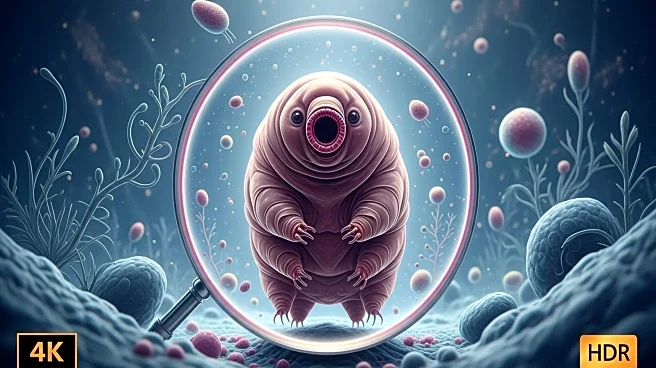What's Happening?
Tardigrades, microscopic creatures known for their resilience, are being studied for their ability to survive extreme conditions. These eight-legged micro-animals, also known as water bears, can endure environments ranging from the vacuum of space to intense radiation. Scientists are exploring ways to harness tardigrades' survival mechanisms for applications such as protecting cancer patients from radiation and preserving food and medicines during space exploration. The study of tardigrades is revealing new insights into their biology and potential uses in various fields.
Why It's Important?
Understanding the resilience of tardigrades could have significant implications for science and technology. Their ability to withstand extreme conditions may lead to breakthroughs in medical treatments, such as improving radiation therapy for cancer patients. Additionally, their survival mechanisms could be applied to enhance the preservation of biological materials during long-duration space missions. The study of tardigrades also contributes to our knowledge of life's adaptability and resilience, offering potential solutions to challenges in medicine, space exploration, and beyond.









